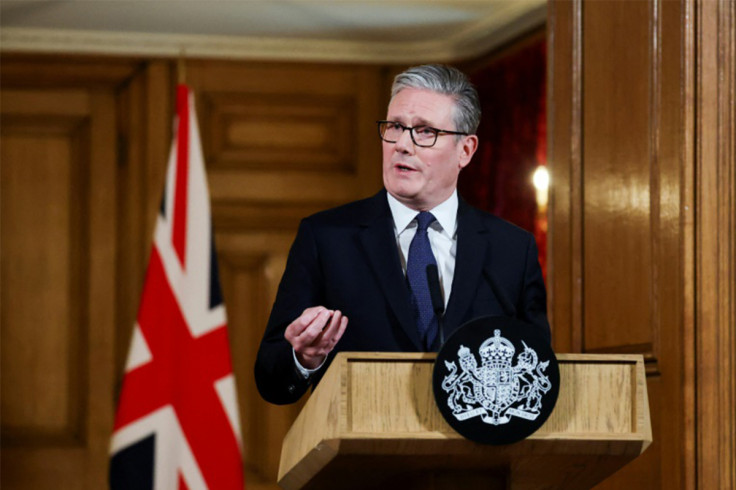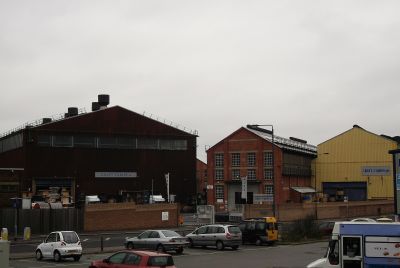Ministers Take Control of £10bn Thames Tunnel Project From National Highways Amid Growing Controversy
Ministers Tighten Grip on £10 Billion Thames Tunnel Scheme, Raising Fears Over Transparency and Environmental Impact

The UK government has made a very controversial shift in how it will deliver one of the country's largest infrastructure projects yet.
Ministers have now removed oversight of the £10 billion Lower Thames Crossing from National Highways and placed it directly under the Department for Transport (DfT) in a move that shocked the nation. This move clearly shows a desire for tighter control over decision making on mega projects in the country but also starts debate over deep issues about transparency, accountability and cost escalation.
Already, critics are sounding alarms on this, so could this move be a recipe for overreach and unchecked spending?
The UK Govt. Takes Over Lower Thames Crossing
The heart of this dramatic matter lies in the decision by the government to strip National Highways which is the agency historically responsible for road planning, maintenance and delivery of its role in overseeing the Lower Thames Crossing project. Instead, ministers will reportedly now control costs, design scope and funding decisions, relegating National Highways to more limited roles, basically taking away most of its power.
This shift as per some reports is part of a bigger agenda under the Starmer government, which has reportedly emphasised giving ministers a tighter grip on high stakes infrastructure projects like this one. The Guardian reports that internal consultation documents describe the Lower Thames Crossing as a 'Tier 1' programme, hence it has to be managed by the transport secretary
This has obviously sparked a lot of debate as proponents of this move argue the change is long overdue. They allegedly say that by removing layers of bureaucracy and centralising decision making, the project can escape the inertia and delays that have affected large public works like this in the past. With the project reportedly already carrying a £590 million initial investment and a £1.2 billion contract awarded to Balfour Beatty for road connections, ministers clearly want to accelerate momentum it seems.
All that seems well, but it is this very centralisation that worries critics here. For instance, Transport Action Network as per reports, has warned that by taking the project out of the regular roads programme and giving the DfT 'a blank cheque,' ministers risk recreating the overspending fiasco of HS2. Environmental campaigners have also expressed fears that decisions will increasingly be made behind closed doors, sidelining public consultation and weakening scrutiny when it comes to regulations.
The Risk For The UK Govt.
Firstly, the environmental stakes are high here. The Lower Thames Crossing cuts across sensitive habitats on both Kent's northern shore and the Essex coast as per initial plans. Therefore, campaigners argue that the tunnel could allegedly result in habitat loss, harm to species, and increased carbon emissions without necessarily resolving traffic issues on existing roads which the project is meant for. The government's own planning reforms as per the reports have hinted at pushing through development with fewer regulatory safeguards, particularly for wildlife protections. So, critics say that this tunnel may become a test case for how far such reforms will go.
Then there is cost risk of course. This move to centralise control may favour speed over caution here. Treasury officials reportedly backed the shift in response to frustrations over delays caused by 'bats and newts' and other environmental protections.But delivering complex infrastructure through ministerial direction rather than technical knowhow increases the chance of budget blowouts. The precedent of HS2 looms as a cautionary tale of grand ambitions colliding with runaway costs when taken hastily.

Finally, aware of public sensitivity to infrastructure failures in the past, ministers may feel pressure to deliver visible results in this project since they are now directly responsible. The Lower Thames Crossing, once completed, is pitched as solving congestion around Dartford and improving freight connections from southern ports to the Midlands and the north.
But the removal of National Highways as gatekeeper means that decisions about tolling, scope, environmental mitigation, and contractor selection will largely happen under ministerial authority. National Highways will still 'focus on managing, maintaining and renewing the network' but real power on the project costs an execution now lies within government.
© Copyright IBTimes 2025. All rights reserved.





















